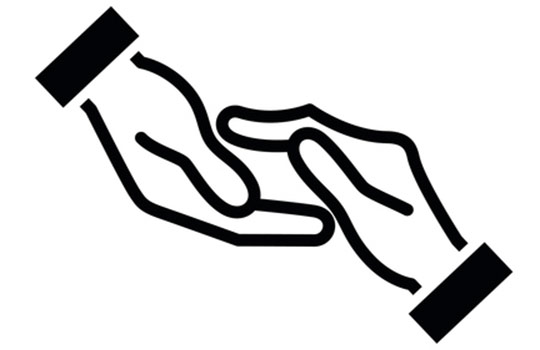What are the qualities that make for a good doctor and what can patients do if they’re missing?
 It is an all too rare occasion that I look forward to a doctor’s appointment, but there are exceptions to every rule. I am fortunate enough to consider myself in good and even exceptional hands when it comes to my healthcare team. (It bears pointing out that I am included in that whole as both active and passive. I am not merely the subject matter.) This begs the question, “What are the qualities that I as a patient believe makes a doctor ‘good,’ and what makes one exceptional?”
It is an all too rare occasion that I look forward to a doctor’s appointment, but there are exceptions to every rule. I am fortunate enough to consider myself in good and even exceptional hands when it comes to my healthcare team. (It bears pointing out that I am included in that whole as both active and passive. I am not merely the subject matter.) This begs the question, “What are the qualities that I as a patient believe makes a doctor ‘good,’ and what makes one exceptional?”
There will be similarities to the answers that most people give; knowledge is an obvious beginning, but it’s by no means the end. Encyclopaedic knowledge may still leave me cold and missing the feeling of a connection.
Next is taking me seriously and not dismissing me—actually investigating the complaint. I may not present the symptoms I am there for during the consultation, but hearing that they are not there now is of no help to me whatsoever. If only life were that simple.
Honesty, also, is necessary, including the very human answer of “I don’t know.” My family physician phrased it beautifully when he said, “We are good at ruling things out, but we don’t always know what it is.”
The value of having that distinct and very real feeling of being “safe”—not only cared for but also cared about—cannot be emphasised enough. My late family doctor set aside 15 minutes every Friday for a chat to help me through a difficult time. He was my confidante. When I first started seeing my neurologist, he ran late enough that my husband and I had to leave the waiting room. He later called me at home to apologise. He offered to refer me to another doctor, but that only served to cement my determination to continue seeing him. It is not often that anyone is a big enough person to do that. We have had a long, punctual, and (hopefully mutually) pleasant relationship. I am greeted with a happy smile and a warm handshake when I see him, my husband remembered, even if he isn’t with me. Strength of character is an asset. My physiatrist has a way of helping me to stay positive and believes in my pain without minimising it. He reminds me of a teacher who had the ability to make me want to excel. They have all given me strength and support.
These are some personal examples of what I consider attributes of exceptional hands. We need more doctors like them—to encourage continued excellence and to ease the growing demand for their care. But how can you teach someone these qualities? My fear for doctors who provide this level of outstanding care is that they will burn out, harden their attitudes and ears, and become a casualty of their own excellence.
I have confidence in my doctors’ choices when I am referred to a new doctor. But what happens if it isn’t a good fit? It is with no small amount of reluctance that I seek counsel when there is friction between a doctor and myself, especially when that doctor has been with me for a few years. However, if it is enough of a concern for me to give voice to, then it has to have been festering for some time. Living in a large city affords me the ability to consider an alternative doctor, but it is a luxury that some patients do not have.
It once saddened me to conclude, finally, that in my view the relationship between a doctor and myself was irreparably damaged. Some things I cannot forget. When the hands have become calloused and rough, the ears unhearing, and examinations start to feel more like interrogations, it is time to reconsider. When I become only my history and not my future, and accusations replace encouragement, it is not a healthy and healing environment for me. I asked for a referral and moved on.
My latest health challenge has left me in a unique position. I honestly do not think I have ever been told that I am “too nice” when it comes to my own healthcare, especially from a doctor, but it happened. It is not often that people think of me as a shrinking violet. In fact, I know some who would laugh at the notion. So it is a new predicament to find myself afraid to ask for a second opinion as has been suggested. The quandary is the idea that the doctor whose care I am in would be displeased if it were discovered. Surely that knowledge would influence my doctor’s reception of me—after all, being human does at times trump the principle of objectivity. Clearly, the unknown answer intimidates me. But this raises a serious question: if I, as outspoken as I am, feel hesitant to request a second opinion, what about the numerous patients who are too afraid to ask for a referral for any number of reasons?
In a utopian world, we could all boast of being in excellent hands and physicians would have the burden of being a much needed doctor shared. This world may be just a dream for now but it can be built—one pair of hands at a time.
Sharon Roman studied economics at the University of Toronto and Simon Fraser University. She had her first MS attack around the age of 30.
Competing interests: None declared.
